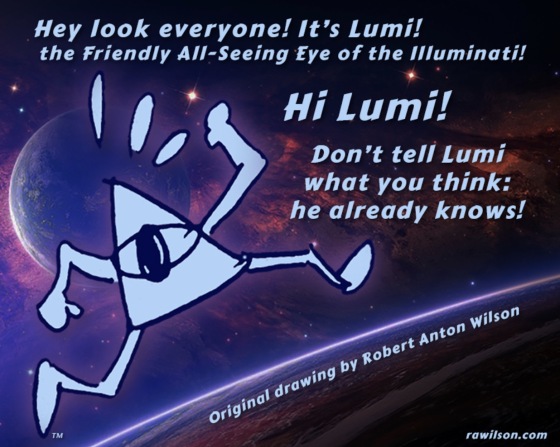2024.01.15
So for a long time I've had my personal avatar/mascot Alien Bill - here is the earliest known version of him (from an unsent note/letter in high school), the one I based my tattoo on:



The Copenhagen Interpretation is sometimes called "model agnosticism" and holds that any grid we use to organize our experience of the world is a model of the world and should not be confused with the world itself. Alfred Korzybski, the semanticist, tried to popularize this outside physics with the slogan, "The map is not the territory." Alan Watts, a talented exegete of Oriental philosophy, restated it more vividly as "The menu is not the meal."
If you suspect that the wobbly time-sense of Eire can be explained entirely as a manifestation of the calculated procrastination of colonial peoples, you are probably missing the complexity of the Gaelic mindset. One story tells of the two clocks in Padraic Pearse Station, Dublin, which, of course, being Irish clocks always disagree. An Englishman, this story claims, once commented loudly and angrily on how "typically Irish" it was to have two clocks in a train station that gave different times. "Ah, sure," a Dublin man replied, "if they agreed, one of them would be superfluous."
Mad magazine was right in claiming "the missing link between ape and civilized humanity is us."
Karma, in the original Buddhist scriptures, is a blind machine; in fact, it is functionally identical with the scientific concept of natural law. Sentimental ethical ideas about justice being built into the machine, so that those who do evil in one life are punished for it in another life, were added later by theologians reasoning from their own moralistic prejudices. Buddha simply indicated that all the cruelties and injustices of the past are still active: their effects are always being felt. Similarly, he explained, all the good of the past, all the kindness and patience and love of decent people is also still being felt.
I just mean that the world has begun to freak out a lot of ignorant people, and America has more ignorant people than any other industrial nation, because of certain differences between European and American capitalists.
In general, European capitalists usually have broad educations, keep up with artistic and cultural trends, have long accepted some degree of socialism as inevitable, and believe they can make bigger profits with very well educated workers who understand the science behind the technology they use. American capitalists usually have narrowly specialized educations, no interests beyond profit itself, fear that any degree of socialism will destroy them utterly, and believe they can make bigger profits with an ignorant and docile working class.
I am looking for a place
Where the horizon is all sky.
The major difference between a thing that might go wrong and a thing that cannot possibly go wrong is that when a thing that cannot possibly go wrong goes wrong it usually turns out to be impossible to get at or repair.
Me: my stomach hurts so bad
My brain: that's because you drank a giant glass of very strong iced coffee on an empty stomach then had African peanut chicken stew with extra hot sauce for lunch
Me: it's a mystery
I'm not a linguistic prescriptivist by any means but I am not at ease with "compute" as a noun - e.g. "more and cheaper compute means better AI". It seems to have sprung up fairly recency. I think it's supposed to sound smart.
